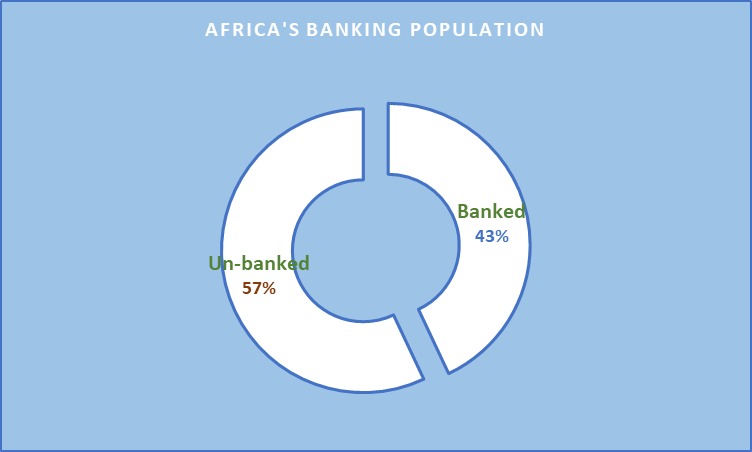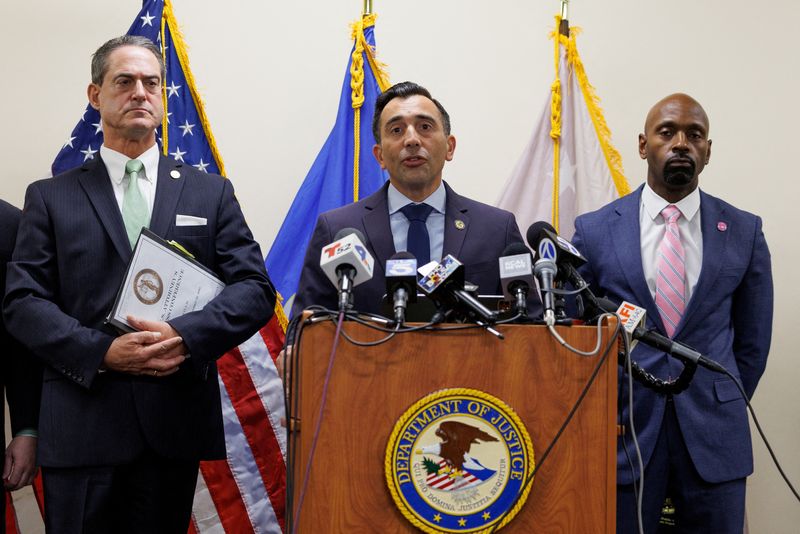Key Legal Battles Won By LGBT+ Pioneers

Table of Contents
Overturning Sodomy Laws (e.g., Lawrence v. Texas)
The Impact of Lawrence v. Texas
Lawrence v. Texas (2003) stands as a monumental LGBT+ legal victory. This Supreme Court case struck down sodomy laws nationwide, invalidating state statutes that criminalized intimate sexual conduct between consenting adults of the same sex. The ruling effectively overturned Bowers v. Hardwick (1986), a previous decision that upheld a Georgia sodomy law.
- Reversed Bowers v. Hardwick: Lawrence v. Texas explicitly overruled Bowers v. Hardwick, recognizing the flawed reasoning and discriminatory nature of the earlier decision.
- Established a right to privacy concerning intimate sexual conduct: The court recognized a fundamental right to privacy, extending protections to intimate consensual sexual conduct between adults, regardless of sexual orientation.
- Significantly impacted future LGBT+ rights litigation: This victory provided a crucial legal precedent for subsequent LGBT+ rights cases, strengthening arguments for equality in areas like marriage, employment, and anti-discrimination laws.
- Increased legal protections against discrimination: By establishing a foundation of privacy rights, Lawrence v. Texas laid the groundwork for challenging other forms of discrimination based on sexual orientation.
The Ripple Effect on State and Local Laws
Lawrence v. Texas's impact extended far beyond the Supreme Court. Its ruling prompted the swift repeal of remaining sodomy laws in various states. This ripple effect demonstrated the significant influence of federal court decisions on state-level legislation.
- Examples of states where sodomy laws were repealed following Lawrence: Following the Lawrence decision, several states quickly repealed their remaining sodomy laws, reflecting a changing legal and social landscape.
- The acceleration of marriage equality movements: The enhanced legal protections afforded by Lawrence contributed to the momentum behind the marriage equality movement, providing a stronger foundation for future challenges to discriminatory laws.
- The impact on public opinion regarding LGBT+ rights: The Supreme Court's decision helped shift public opinion, contributing to increased acceptance and support for LGBT+ rights.
The Marriage Equality Movement (e.g., Obergefell v. Hodges)
The Road to Obergefell v. Hodges
The landmark Obergefell v. Hodges (2015) decision, guaranteeing the right to same-sex marriage nationwide, was the culmination of a long and arduous legal battle. Many state-level cases paved the way, each chipping away at discriminatory laws and building momentum towards federal recognition.
- Mention key state-level cases that legalized same-sex marriage: Cases like Goodridge v. Department of Public Health (Massachusetts) and In re Marriage Cases (California) played vital roles in establishing same-sex marriage in various states, showcasing diverse legal strategies and highlighting the increasing demand for marriage equality.
- Highlight the diverse legal strategies employed: Lawyers utilized various legal approaches, including challenges based on equal protection and due process clauses of the Fourteenth Amendment.
- Explain the increasing momentum for federal recognition: As more states legalized same-sex marriage, the pressure for federal recognition increased, leading to the Supreme Court's eventual decision in Obergefell.
The Supreme Court Decision and its Consequences
Obergefell v. Hodges declared that the right to marry is a fundamental right inherent in the liberty of the person, and it applies to same-sex couples. This ruling had far-reaching consequences for LGBT+ individuals and families.
- Recognition of same-sex marriage as a constitutional right: This decision fundamentally changed the legal landscape, granting same-sex couples the same legal rights and protections as heterosexual couples.
- Impact on adoption and parental rights: The ruling significantly improved adoption and parental rights for same-sex couples, strengthening family units and affording children the same legal protections as those in heterosexual families.
- Ongoing legal challenges related to religious exemptions: Despite Obergefell, legal challenges continue regarding the balance between religious freedom and LGBT+ rights, particularly concerning the provision of services by religious organizations.
Challenges to Anti-Discrimination Laws (e.g., Cases involving employment, housing, and public accommodations)
Employment Non-Discrimination Act (ENDA) – State and Local Level Victories
While a federal Employment Non-Discrimination Act (ENDA) remains elusive, significant progress has been made at the state and local levels. Many jurisdictions have enacted robust anti-discrimination laws protecting LGBT+ individuals from employment discrimination.
- Examples of states and cities with strong anti-discrimination laws: Numerous states and cities boast comprehensive laws protecting LGBT+ individuals from discrimination in employment, housing, and public accommodations.
- Highlight specific legal battles and their outcomes: Court cases defending and expanding these protections have been instrumental in securing LGBT+ rights at the local level.
- Mention the ongoing fight for federal protection: Advocates continue to push for a federal ENDA to ensure consistent nationwide protection against workplace discrimination.
Expanding Protections Beyond Employment
The fight for equality extends beyond employment. Legal battles continue to address discrimination in housing, public accommodations, and other areas of life.
- Examples of landmark cases concerning housing discrimination: Cases challenging discriminatory housing practices have been vital in ensuring fair access to housing for LGBT+ individuals.
- Cases related to access to public services and accommodations: Legal battles continue to secure equal access to public services, such as healthcare and education, for LGBT+ individuals.
- The evolution of legal arguments and strategies: Legal strategies have evolved to effectively address the multifaceted nature of discrimination.
Transgender Rights and Legal Battles
Bathroom Bills and Access to Public Accommodations
The issue of transgender access to restrooms and other public accommodations has been the subject of intense legal battles. So-called "bathroom bills" restricting access based on assigned sex at birth have faced significant legal challenges.
- Highlight key cases challenging discriminatory bathroom bills: Several landmark cases have challenged these restrictive laws, arguing they violate the rights of transgender individuals.
- The arguments used by both sides in these cases: These cases highlight the clash between religious freedom claims and the fundamental rights of transgender individuals.
- The impact on transgender individuals' safety and well-being: Restrictive bathroom bills have a significant negative impact on the safety, dignity, and well-being of transgender people.
Gender Recognition and Legal Challenges
Legal challenges also focus on gender recognition on official documents and the right to self-identification.
- Highlight cases focusing on changing names and genders on legal documents: Cases concerning name and gender changes on driver's licenses, passports, and other official documents illustrate the ongoing fight for legal recognition of gender identity.
- The legal arguments around gender identity and self-determination: These cases raise crucial questions about the right to self-determination and the importance of legal recognition of gender identity.
- The ongoing fight for legal recognition of gender identity: The fight for legal recognition continues, focusing on ensuring that transgender individuals' identities are respected and protected.
Conclusion
This article has highlighted several key legal battles won by LGBT+ pioneers, demonstrating the significant progress achieved in securing legal protections and equality. From overturning discriminatory sodomy laws to achieving marriage equality and fighting against anti-discrimination measures, these victories represent milestones in the ongoing struggle for LGBT+ rights. While much progress has been made, the fight for full equality continues. Staying informed about LGBT+ legal victories and ongoing challenges is crucial for supporting the ongoing fight for full legal recognition and equal rights for all members of the LGBTQ+ community. Learn more and get involved in supporting organizations working to secure LGBT+ legal victories in your community.

Featured Posts
-
 Nyt Strands Spangram Solution April 3 2025
Apr 29, 2025
Nyt Strands Spangram Solution April 3 2025
Apr 29, 2025 -
 Modificari Fiscale 2025 Ce Trebuie Sa Stiti De La Conferinta Pw C Romania
Apr 29, 2025
Modificari Fiscale 2025 Ce Trebuie Sa Stiti De La Conferinta Pw C Romania
Apr 29, 2025 -
 The Treasury Market On April 8th What Happened And Why
Apr 29, 2025
The Treasury Market On April 8th What Happened And Why
Apr 29, 2025 -
 Pw Cs Sub Saharan African Retreat Reasons And Consequences
Apr 29, 2025
Pw Cs Sub Saharan African Retreat Reasons And Consequences
Apr 29, 2025 -
 Millions In Losses Inside The Office365 Executive Inbox Hacking Scheme
Apr 29, 2025
Millions In Losses Inside The Office365 Executive Inbox Hacking Scheme
Apr 29, 2025
Latest Posts
-
 French Military Modernization Serval Armored Vehicle Deployment Begins
Apr 30, 2025
French Military Modernization Serval Armored Vehicle Deployment Begins
Apr 30, 2025 -
 Pokhorony Papy Frantsiska Mozhliva Zustrich Trampa Ta Zelenskogo
Apr 30, 2025
Pokhorony Papy Frantsiska Mozhliva Zustrich Trampa Ta Zelenskogo
Apr 30, 2025 -
 Initial Delivery Of Serval Armored Vehicles To French Military
Apr 30, 2025
Initial Delivery Of Serval Armored Vehicles To French Military
Apr 30, 2025 -
 Pokhovalna Tseremoniya Papi Chi Stane Svidkom Zustrichi Trampa Ta Zelenskogo
Apr 30, 2025
Pokhovalna Tseremoniya Papi Chi Stane Svidkom Zustrichi Trampa Ta Zelenskogo
Apr 30, 2025 -
 Zustrich Trampa Ta Zelenskogo Na Pokhoronakh Papi Frantsiska Ostanni Novini
Apr 30, 2025
Zustrich Trampa Ta Zelenskogo Na Pokhoronakh Papi Frantsiska Ostanni Novini
Apr 30, 2025
